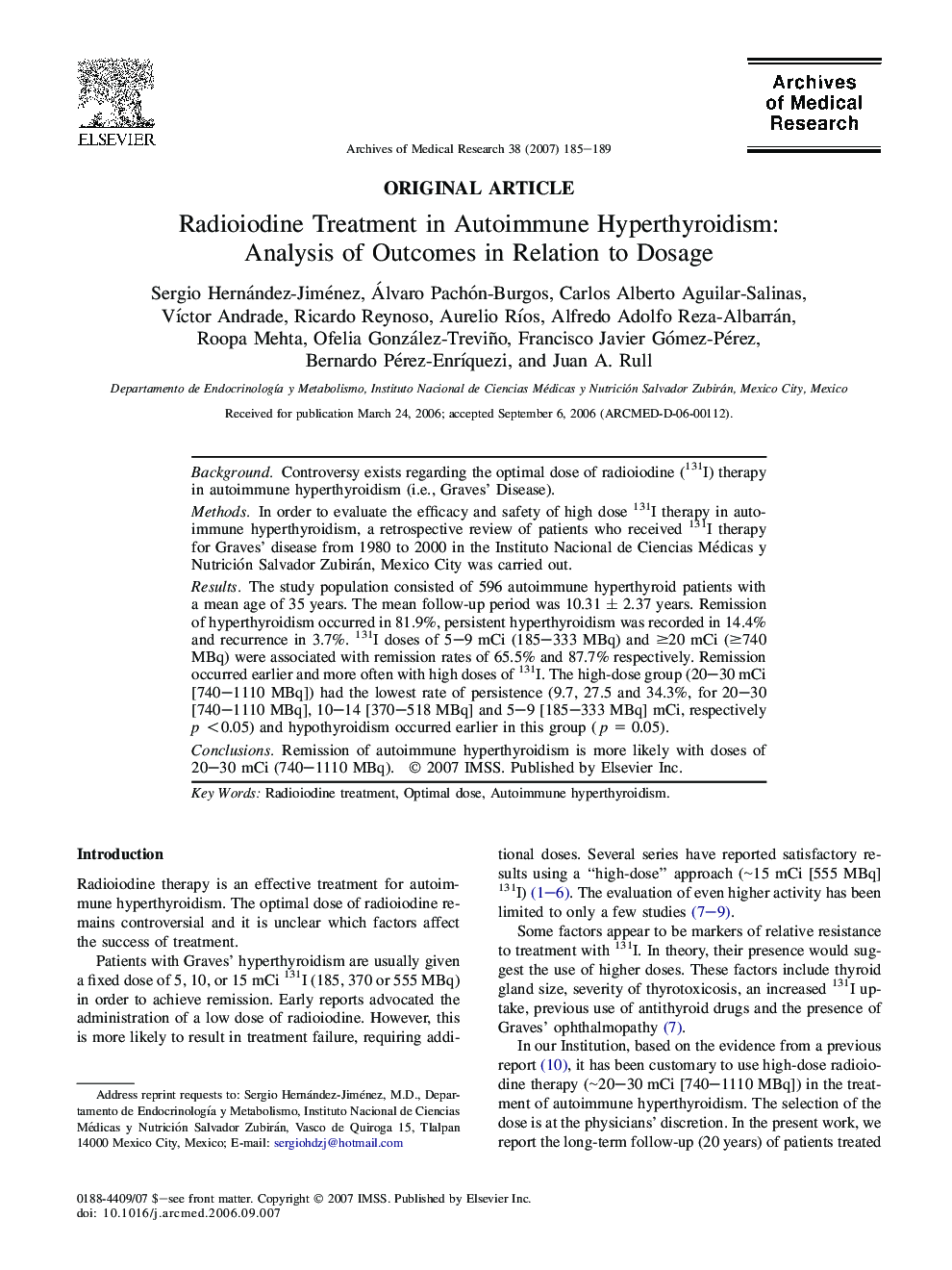| Article ID | Journal | Published Year | Pages | File Type |
|---|---|---|---|---|
| 3447455 | Archives of Medical Research | 2007 | 5 Pages |
BackgroundControversy exists regarding the optimal dose of radioiodine (131I) therapy in autoimmune hyperthyroidism (i.e., Graves' Disease).MethodsIn order to evaluate the efficacy and safety of high dose 131I therapy in autoimmune hyperthyroidism, a retrospective review of patients who received 131I therapy for Graves' disease from 1980 to 2000 in the Instituto Nacional de Ciencias Médicas y Nutrición Salvador Zubirán, Mexico City was carried out.ResultsThe study population consisted of 596 autoimmune hyperthyroid patients with a mean age of 35 years. The mean follow-up period was 10.31 ± 2.37 years. Remission of hyperthyroidism occurred in 81.9%, persistent hyperthyroidism was recorded in 14.4% and recurrence in 3.7%. 131I doses of 5–9 mCi (185–333 MBq) and ≥20 mCi (≥740 MBq) were associated with remission rates of 65.5% and 87.7% respectively. Remission occurred earlier and more often with high doses of 131I. The high-dose group (20–30 mCi [740–1110 MBq]) had the lowest rate of persistence (9.7, 27.5 and 34.3%, for 20–30 [740–1110 MBq], 10–14 [370–518 MBq] and 5–9 [185–333 MBq] mCi, respectively p <0.05) and hypothyroidism occurred earlier in this group (p = 0.05).ConclusionsRemission of autoimmune hyperthyroidism is more likely with doses of 20–30 mCi (740–1110 MBq).
